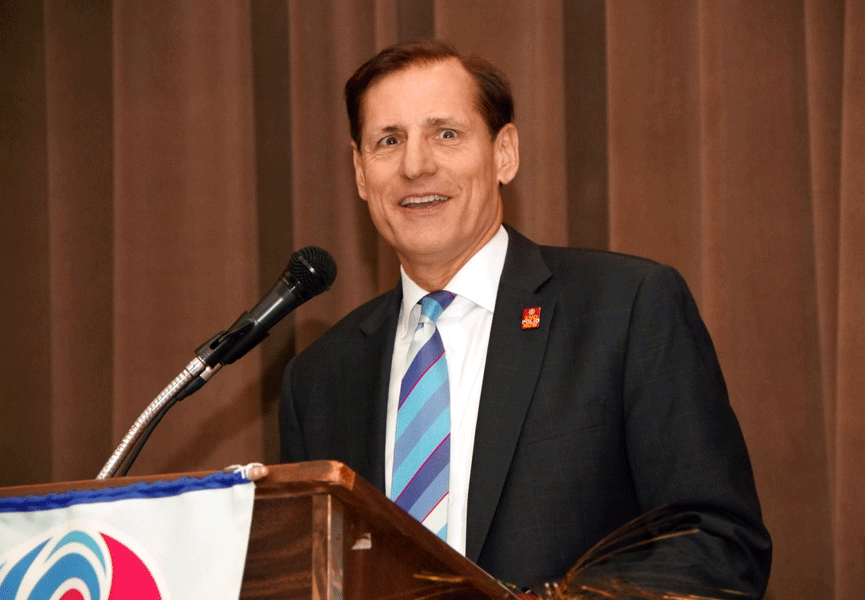The creation of 3-H Grants programmes designed to carry out large-scale service projects in the area of health, hunger and humanity, and second, the creation of PolioPlus are two major turning points in Rotary’s history, said RI general secretary John Hewko in his address at the virtual International Assembly.

In fact, the concept of transforming the health and well-being of others on a huge scale is now part of Rotary’s DNA. “Yet at the time these ideas were conceived they were considered almost revolutionary and the subject of intense debate,” he recalled. PRIP Jim Bomar spoke about this debate at the 1979 IA. He had received a letter from a Rotary member who said, “You know, we don’t need any changes. Everything is just all right. Let it remain as it now is.” And in response, Bomar asked whether keeping things as they were “will meet the tests and demands of the 21st century.”
There is a clear need to adapt Rotary’s policies and outlook to the changing world. And, thanks to the decisions of the RI Board, the Foundation trustees and the Council on Legislation, the 3-H programme was launched and a 55-year prohibition against corporate programmes in Rotary was overcome.
Thanks to PolioPlus, 19 million people who would otherwise have been paralysed are walking today and Rotary’s stature on the global stage has been elevated to a level we could never have dreamed of. “If the 3-H and PolioPlus programmes were clear turning points in Rotary’s 20th century history, the year of the coronavirus is a test of Rotary’s ability to adapt in the 21st. Although new and bold ideas might face resistance, if they are responsive to the need for Rotary to continually grow and prosper, they will prevail,” Hewko explained.
Service opportunities
If we think about 3-H and PolioPlus, they were ultimately supported by the vast majority of Rotary members for one reason: They provided opportunities for members to make an impact through service projects. “Remember, engaged members stay with Rotary, and through Rotary they can accomplish great things,” he said. And the variety of service opportunities to engage members today is even greater than before. “Whether you wish to mentor local high school students or participate in our newest cause, the environment, or our newest grant type, Programmes of Scale, there really is something for everyone at Rotary.”
New members must be given clear roles from the beginning, he said and cited an instance. The Rotary Club of Central Ocean in New Jersey, USA, implemented a Bring Your Own Project initiative to give new members the immediate ownership of something important to them. The club was able to complete nine service projects in the first half of one Rotary year and thereby engage and retain its newest members.
Now, in addition to engagement at the club level, fellowships and Rotary Action Groups connect members across the world who share a passion. “And to keep members engaged, we must also encourage them to make full use of the more than 600 courses in over a dozen languages available on the Rotary Learning Center. And they can also take the leadership development courses, thanks to Rotary’s alliance with Toastmasters,” said Hewko.
For most companies, “Covid has accelerated the adoption of digital technologies by several years, and some things will need to change permanently as we move forward.” The role of district governors is critical. “Now is your time to lead, shape a better world as we emerge from this crisis. And if you can engage and retain our greatest asset — our members — we can seize the moment and prepare for a better future.”
District governors are far more than administrators. “You are the agents of change and innovation. In the words of one of Rotary’s greatest innovators, the late PRIP Luis Vicente Giay, you are ‘the architects of the future’,” he said.





